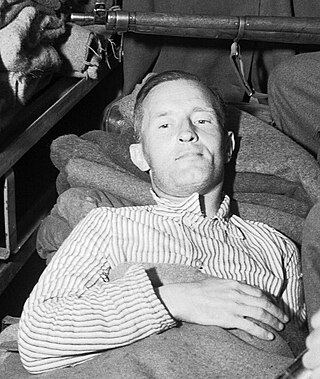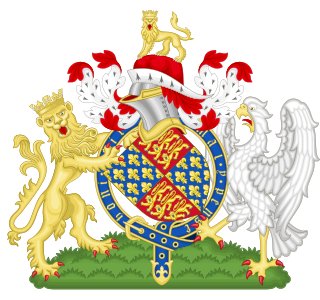
Treason is the crime of attacking a state authority to which one owes allegiance. This typically includes acts such as participating in a war against one's native country, attempting to overthrow its government, spying on its military, its diplomats, or its secret services for a hostile and foreign power, or attempting to kill its head of state. A person who commits treason is known in law as a traitor.

The Constitution of the Irish Free State was adopted by Act of Dáil Éireann sitting as a constituent assembly on 25 October 1922. In accordance with Article 83 of the Constitution, the Irish Free State Constitution Act 1922 of the British Parliament, which came into effect upon receiving the royal assent on 5 December 1922, provided that the Constitution would come into effect upon the issue of a Royal Proclamation, which was done on 6 December 1922. In 1937 the Constitution of the Irish Free State was replaced by the modern Constitution of Ireland following a referendum.
Sedition is overt conduct, such as speech or organization, that tends toward rebellion against the established order. Sedition often includes subversion of a constitution and incitement of discontent toward, or insurrection against, established authority. Sedition may include any commotion, though not aimed at direct and open violence against the laws. Seditious words in writing are seditious libel. A seditionist is one who engages in or promotes the interest of sedition.
Perverting the course of justice is an offence committed when a person prevents justice from being served on themselves or on another party. In England and Wales it is a common law offence, carrying a maximum sentence of life imprisonment. Statutory versions of the offence exist in Australia, Canada, Fiji, Ireland, and New Zealand. The Scottish equivalent is defeating the ends of justice, although charges of attempting to pervert the course of justice are also raised in Scotland, while the South African counterpart is defeating or obstructing the course of justice. A similar concept, obstruction of justice, exists in United States law.

Under the law of the United Kingdom, high treason is the crime of disloyalty to the Crown. Offences constituting high treason include plotting the murder of the sovereign; committing adultery with the sovereign's consort, with the sovereign's eldest unmarried daughter, or with the wife of the heir to the throne; levying war against the sovereign and adhering to the sovereign's enemies, giving them aid or comfort; and attempting to undermine the lawfully established line of succession. Several other crimes have historically been categorised as high treason, including counterfeiting money and being a Catholic priest.

Arson in royal dockyards and armories was a criminal offence in the United Kingdom and the British Empire. It was among the last offences that were punishable by capital punishment in the United Kingdom. The crime was created by the Dockyards etc. Protection Act 1772 passed by the Parliament of Great Britain, which was designed to prevent arson and sabotage against vessels, dockyards, and arsenals of the Royal Navy.
Misprision of treason is an offence found in many common law jurisdictions around the world, having been inherited from English law. It is committed by someone who knows a treason is being or is about to be committed but does not report it to a proper authority.

The Treason Act 1351 is an Act of the Parliament of England wherethrough, according to William Blackstone, common law treason offences were enumerated and no new offences were, by statute, created. It is one of the earliest English statutes still in force, although it has been very significantly amended. It was extended to Ireland in 1495 and to Scotland in 1708. The Act was passed at Westminster in the Hilary term of 1351, in the 25th year of the reign of Edward III and was entitled "A Declaration which Offences shall be adjudged Treason". It was passed to clarify precisely what was treason, as the definition under common law had been expanded rapidly by the courts until its scope was controversially wide. The Act was last used to prosecute William Joyce in 1945 for collaborating with Germany in World War II.
Seditious libel is a criminal offence under common law of printing written material with seditious purpose – that is, the purpose of bringing contempt upon a political authority. It remains an offence in Canada but has been abolished in England and Wales.
Misprision in English law describes certain kinds of offence. Writers on criminal law usually divide misprision into two kinds: negative and positive.

The Offences against the Person Act 1861 is an Act of the Parliament of the United Kingdom of Great Britain and Ireland. It consolidated provisions related to offences against the person from a number of earlier statutes into a single Act. For the most part these provisions were, according to the draftsman of the Act, incorporated with little or no variation in their phraseology. It is one of a group of Acts sometimes referred to as the Criminal Law Consolidation Acts 1861. It was passed with the object of simplifying the law. It is essentially a revised version of an earlier consolidation act, the Offences Against the Person Act 1828, incorporating subsequent statutes.

The Treason Felony Act 1848 is an Act of the Parliament of the United Kingdom of Great Britain and Ireland. Parts of the Act are still in force. It is a law which protects the King and the Crown.

The Treason Act 1695 is an Act of the Parliament of England which laid down rules of evidence and procedure in high treason trials. It was passed by the English Parliament but was extended to cover Scotland in 1708 and Ireland in 1821. Some of it is still in force today.

The Sedition Act 1661 was an Act of the Parliament of England, although it was extended to Scotland in 1708. Passed shortly after the Restoration of Charles II, it is no longer in force, but some of its provisions continue to survive today in the Treason Act 1695 and the Treason Felony Act 1848. One clause which was included in the Treason Act 1695 was later adapted for the United States Constitution.

The Criminal Law Act 1967 is an act of the Parliament of the United Kingdom that made some major changes to English criminal law, as part of wider liberal reforms by the Labour government elected in 1966. Most of it is still in force.

Capital punishment in the Republic of Ireland was abolished in statute law in 1990, having been abolished in 1964 for most offences including ordinary murder. The last person to be executed was Michael Manning, hanged for murder in 1954. All subsequent death sentences in the Republic of Ireland, the last handed down in 1985, were commuted by the President, on the advice of the Government, to terms of imprisonment of up to 40 years. The Twenty-first Amendment to the constitution, passed by referendum in 2001, prohibits the reintroduction of the death penalty, even during a state of emergency or war. Capital punishment is also forbidden by several human rights treaties to which the state is a party.

The Treason Act 1554 was an Act of the Parliament of England. It is not to be confused with two other Acts about treason passed in the same year, 1 & 2 Ph. & M. cc. 9 and 11.

The Incitement to Mutiny Act 1797 was an Act passed by the Parliament of Great Britain. The Act was passed in the aftermath of the Spithead and Nore mutinies and aimed to prevent the seduction of sailors and soldiers to commit mutiny.
The Treason Act 1939 is an Act of the Oireachtas (Parliament) of the Republic of Ireland. It provides for the punishment of treason and related offences.

The Crimes Act of 1790, formally titled An Act for the Punishment of Certain Crimes Against the United States, defined some of the first federal crimes in the United States and expanded on the criminal procedure provisions of the Judiciary Act of 1789. The Crimes Act was a "comprehensive statute defining an impressive variety of federal crimes".











